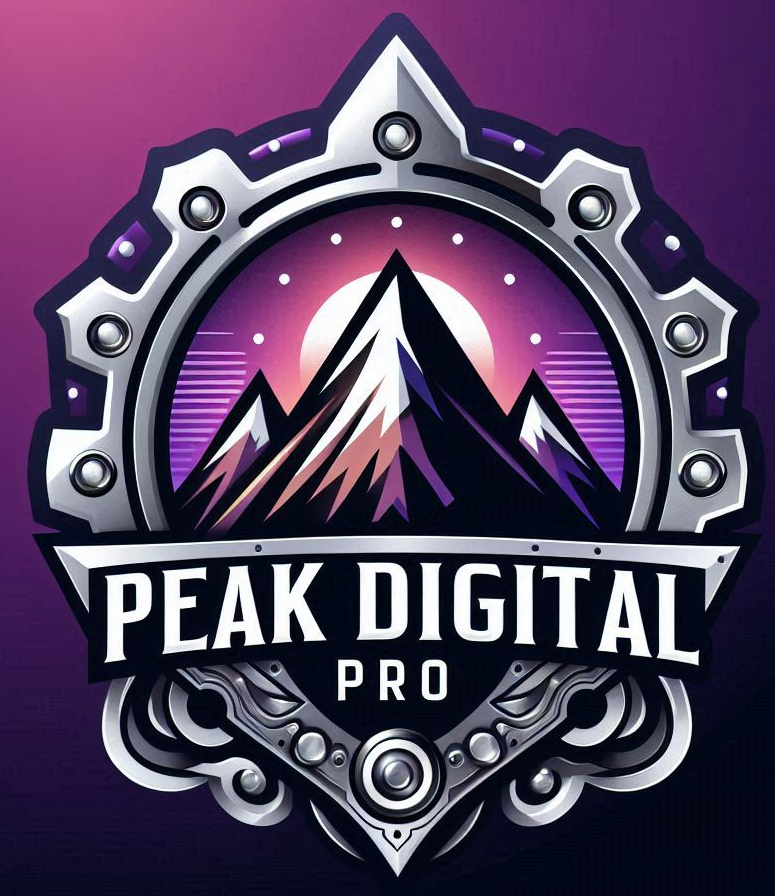Digital Marketplaces Overview for U.S. Business Owners
Digital marketplaces have completely changed how businesses reach customers and sell products online. At first glance, it seems like having access to platforms with over 9.5 million sellers on Amazon alone would make things overwhelmingly complicated for the average business owner. Oddly enough, these giant platforms are actually the fastest way for small Colorado companies to save on costs and reach national or even global customers with just a few clicks.
Table of Contents
Quick Summary
| Takeaway | Explanation |
|---|---|
| Leverage Digital Marketplaces for Global Reach | Digital marketplaces allow businesses to compete on national and international stages, breaking geographical limitations. |
| Optimize Product Listings for Engagement | High-quality images and detailed descriptions significantly boost customer engagement and conversion rates. |
| Manage Reputation Actively | Positive customer experiences lead to wider sharing, while negative reviews can harm your brand; manage both proactively. |
| Utilize Data Analytics | Regular analysis of marketplace performance helps refine strategies and improve sales outcomes over time. |
| Strategic Platform Engagement is Essential | Understanding platform algorithms and dynamics is crucial for maximizing business opportunities and efficiency. |
What Are Digital Marketplaces and How They Work
Digital marketplaces represent a transformative platform where businesses and consumers connect through online ecosystems. These virtual environments enable transactions, service exchanges, and product sales across multiple sectors with unprecedented efficiency and reach.
The Core Mechanics of Digital Marketplace Platforms
At their fundamental level, digital marketplaces function as sophisticated intermediary platforms that connect sellers and buyers in a structured digital environment. Research from Forrester indicates that these platforms leverage advanced technology to streamline interactions, reduce transaction friction, and create transparent, accessible economic networks.
The operational framework of digital marketplaces typically involves several critical components. First, they provide a centralized infrastructure where multiple vendors can list products or services. Second, they implement robust verification systems to ensure quality and reliability. Third, they integrate secure payment gateways and comprehensive transaction management tools that protect both sellers and buyers.
Types and Specialized Digital Marketplace Models
Digital marketplaces are not monolithic but represent diverse models tailored to specific industry needs. McKinsey’s Digital Marketplace Analysis categorizes these platforms into several key types:
- Product Marketplaces : Platforms like Amazon and eBay where physical goods are primary transactions
- Service Marketplaces : Platforms such as Upwork and Fiverr focusing on professional and freelance services
- B2B Marketplaces : Specialized platforms connecting businesses for wholesale, manufacturing, and enterprise-level transactions
- Niche Marketplaces : Highly specialized platforms serving specific industries or unique consumer segments
Each marketplace model implements unique algorithms and matching mechanisms designed to optimize user experience and transactional efficiency. The sophisticated backend technologies powering these platforms utilize machine learning, predictive analytics, and AI-driven recommendation systems to enhance connection quality between sellers and potential customers.
For business owners, understanding digital marketplaces represents more than technological curiosity—it’s a strategic imperative. These platforms offer unprecedented opportunities to expand market reach, reduce traditional marketing overhead, and tap into global customer bases previously inaccessible through conventional sales channels.
The economic potential is substantial. By leveraging digital marketplace infrastructure, businesses can dramatically reduce customer acquisition costs, access sophisticated marketing tools, and benefit from platform-provided analytics that offer deep insights into consumer behavior and market trends.
However, success requires more than mere platform presence. Businesses must develop robust digital strategies, maintain high-quality offerings, cultivate positive user reviews, and continuously adapt to the dynamic digital ecosystem. Digital marketplaces reward those who understand their nuanced operational dynamics and commit to delivering exceptional value to their target audience.
Key Benefits for U.S. and Colorado Businesses
Digital marketplaces have emerged as powerful economic accelerators for U.S. businesses, offering transformative opportunities that extend far beyond traditional sales channels. For Colorado businesses in particular, these platforms represent strategic gateways to expanded market reach and operational efficiency.
Economic Expansion and Market Access
Research from the Data Catalyst Institute reveals that U.S. small and medium businesses gain approximately $145.1 billion in annual economic value through online marketplaces. This substantial figure underscores the profound economic potential these digital platforms provide.
For Colorado businesses, digital marketplaces offer unique advantages. They eliminate geographical limitations, allowing local companies to compete on national and even global stages. A craft brewery in Denver, for instance, can now showcase its products to customers across the United States, transforming local innovation into widespread commercial opportunity.
Cost Efficiency and Operational Optimization
According to a TechNet and Ipsos survey , 85% of small businesses using e-commerce marketplaces reported significant reductions in overall business expenses. These platforms dramatically minimize traditional overhead costs associated with physical retail spaces, marketing, and customer acquisition.
Key cost-saving mechanisms include:
- Reduced Marketing Expenditure : Marketplace platforms provide built-in visibility and targeted audience reach
- Minimal Infrastructure Investment : No need for extensive physical retail setups
- Streamlined Transaction Processing : Integrated payment and logistics systems
Strategic Competitive Advantages
Beyond cost savings, digital marketplaces offer strategic competitive advantages. Explore our guide on advanced business partnership strategies to understand how these platforms can transform business growth.
Businesses leveraging digital marketplaces gain access to sophisticated analytics, customer behavior insights, and sophisticated matching algorithms. These tools enable precise market targeting, personalized customer experiences, and data-driven strategic planning.
For Colorado entrepreneurs, this means moving beyond traditional regional constraints. A local software development firm can now compete for projects nationwide, a boutique clothing designer can reach international markets, and a specialized manufacturing business can connect with enterprise clients across multiple industries.
The digital marketplace ecosystem also fosters innovation. By reducing entry barriers and providing robust infrastructure, these platforms enable smaller businesses to experiment, iterate, and scale with unprecedented agility. This democratization of market access represents a fundamental shift in how businesses conceptualize growth and competition.
However, success requires strategic approach. Businesses must invest in high-quality digital presence, understand platform-specific algorithms, maintain excellent customer ratings, and continuously adapt to evolving digital marketplace dynamics. Those who master these elements can transform digital marketplaces from mere sales channels into comprehensive business acceleration platforms.
Popular Digital Marketplace Platforms for Businesses
Digital marketplace platforms have revolutionized how businesses connect with customers, offering diverse opportunities across multiple sectors. Understanding the landscape of these platforms is crucial for entrepreneurs seeking to expand their market reach and operational efficiency.
Product and Retail Marketplace Platforms
According to Statista’s 2024 E-commerce Report , several key platforms dominate the digital marketplace ecosystem. Amazon remains the undisputed leader, hosting over 9.5 million sellers worldwide and generating $514 billion in annual merchandise sales.
Beyond Amazon, businesses have multiple robust options:
- eBay : A long-standing platform ideal for unique, vintage, and niche product sales
- Etsy : Perfect for handmade, artisan, and custom goods
- Walmart Marketplace : Offering extensive reach for physical product sellers
- Rakuten : A global platform with strong international market penetration
Each platform offers unique advantages. Amazon provides massive customer reach and sophisticated fulfillment services, while Etsy caters to specialized, creative entrepreneurs. Businesses must carefully evaluate platform fees, audience demographics, and alignment with their specific product offerings.
To help business owners select the most appropriate digital marketplace platform, the table below compares major options mentioned in the article, highlighting their key features and primary audience focus.
| Platform | Main Focus | Key Features | Best For |
|---|---|---|---|
| Amazon | Physical Products | Massive reach, fulfillment services | Broad retail businesses |
| eBay | Unique/Vintage Products | Auction model, broad categories | Sellers of rare/used items |
| Etsy | Handmade/Artisan Goods | Custom/creative niche, creator focus | Artisans, small batch makers |
| Walmart Marketplace | Physical Products | Wide reach, retail partnership | Retailers scaling up |
| Rakuten | Physical Products | International market access | Global sellers |
| Upwork | Freelance/Professional | Skill-based search, secure payments | Freelancers, consultants |
| Fiverr | Digital/Creative Services | Multiple-price gigs, fast onboarding | Creative digital professionals |
| LinkedIn ProFinder | Professional Services | Business-focused connections | B2B freelancers, consultants |
| TaskRabbit | Local Services | Task/job-based, local jobs | Skilled labor, local businesses |
| Alibaba | B2B Procurement | Bulk purchasing, global sourcing | Manufacturers, wholesalers |
| ThomasNet | B2B Industrial Supply | Verified vendor network | Industrial buyers, suppliers |
| Amazon Business | B2B Sales | Bulk buying, procurement tools | Business procurement managers |

Service and Professional Marketplace Platforms
For service-based businesses, specialized digital marketplaces provide unprecedented networking opportunities. Freelance Market Analysis by Upwork indicates that professional service marketplaces are experiencing exponential growth, with projected market value reaching $455 billion by 2025.
Key service marketplace platforms include:
- Upwork : Comprehensive platform for professional freelance services
- Fiverr : Ideal for creative and digital service professionals
- LinkedIn ProFinder : Business-focused professional service connections
- TaskRabbit : Local service and skilled labor marketplace
Learn more about strategic digital business partnerships to maximize platform potential and understand nuanced marketplace dynamics.
B2B and Specialized Marketplace Platforms
B2B digital marketplaces represent a sophisticated segment offering targeted business-to-business transaction environments. Platforms like Alibaba, ThomasNet, and Amazon Business provide enterprise-level connection opportunities, enabling businesses to source materials, find suppliers, and expand professional networks.
These specialized platforms offer advanced features such as:
- Verified supplier networks
- Bulk purchasing capabilities
- Integrated procurement tools
- Comprehensive vendor management systems
For Colorado businesses, these marketplaces represent more than transactional platforms. They are strategic ecosystems that facilitate growth, innovation, and competitive positioning. Successful marketplace engagement requires understanding platform algorithms, maintaining high-quality profiles, and consistently delivering exceptional value.
Entrepreneurs must approach digital marketplaces strategically. This means developing comprehensive digital profiles, understanding platform-specific optimization techniques, and continuously adapting to evolving digital marketplace landscapes. The most successful businesses view these platforms not just as sales channels, but as comprehensive business acceleration tools that provide unprecedented market access and operational flexibility.
Tips for Success in Digital Marketplaces
Succeeding in digital marketplaces requires a strategic approach that goes beyond simply listing products or services. Businesses must develop sophisticated strategies that leverage platform algorithms, customer expectations, and technological capabilities to stand out in increasingly competitive digital environments.
Optimizing Product and Profile Presentation
Research from the Digital Marketing Institute reveals that businesses with high-quality, comprehensive product listings receive 67% more engagement and 42% higher conversion rates. This underscores the critical importance of meticulous digital presentation.
Key optimization strategies include:
- Professional Photography : High-resolution, multiple-angle product images
- Detailed Descriptions : Comprehensive, keyword-rich product narratives
- Transparent Pricing : Clear, upfront cost structures
- Comprehensive Seller Profiles : Complete business information and credentials
Businesses must understand that digital marketplace algorithms prioritize listings with complete information, positive customer interactions, and consistent performance metrics. This means investing time in crafting exceptional digital representations of products and services.
Customer Experience and Reputation Management
According to a Zendesk Customer Experience Trends Report , 72% of customers will share a positive experience with six or more people, while negative experiences are shared with 15 or more individuals. In digital marketplaces, reputation is everything.
Effective reputation management involves:
- Prompt and professional customer communication
- Swift resolution of customer issues
- Encouraging and responding to customer reviews
- Maintaining consistently high-quality service standards
Explore our comprehensive guide on building a powerful online presence to understand how digital reputation can transform business opportunities.
Strategic Platform Engagement and Analytics
Successful digital marketplace participation extends beyond basic listing. Businesses must become sophisticated users of platform analytics, understanding and leveraging data-driven insights to refine their strategies.
Advanced engagement techniques include:
- Regular performance metric analysis
- A/B testing of product listings and descriptions
- Understanding platform-specific recommendation algorithms
- Continuous learning and adaptation of marketplace strategies
For Colorado businesses, this means treating digital marketplaces not just as sales channels, but as comprehensive business intelligence platforms. The most successful entrepreneurs view these ecosystems as dynamic environments that require constant monitoring, learning, and strategic refinement.
For business owners seeking to enhance their marketplace presence, the following table summarizes essential strategies and best practices discussed in the article, organized by area of focus.
| Focus Area | Key Strategies/Best Practices |
|---|---|
| Product/Profile Optimization | High-res images, detailed descriptions, transparent pricing |
| Reputation Management | Prompt communication, resolve issues swiftly, encourage/respond to reviews |
| Engagement & Analytics | Analyze metrics regularly, A/B test listings, learn/adapt to algorithms |
| Marketplace Cost Efficiency | Leverage built-in marketing, minimize physical setup, use platform logistics |
| Competitive Advantage | Use analytics for targeting, personalize experiences, iterate offerings |
The digital marketplace landscape is not static. Technological advancements, changing consumer behaviors, and evolving platform algorithms demand continuous adaptation. Businesses that approach digital marketplaces with a learning mindset, technical sophistication, and customer-centric strategies will be best positioned to thrive.
Ultimately, success in digital marketplaces is about more than transactions. It’s about building trust, delivering exceptional value, and creating seamless, memorable customer experiences that distinguish a business in an increasingly crowded digital landscape.

Frequently Asked Questions
What are digital marketplaces?
Digital marketplaces are online platforms that facilitate transactions between buyers and sellers across various sectors, allowing businesses to reach customers efficiently and effectively.
How can businesses benefit from using digital marketplaces?
Businesses can benefit by gaining access to a broader customer base, reducing traditional marketing costs, optimizing operations, and leveraging sophisticated analytics for better decision-making.
What types of digital marketplaces are available for businesses?
There are several types of digital marketplaces, including product marketplaces (like Amazon and eBay), service marketplaces (like Upwork and Fiverr), B2B marketplaces (like Alibaba and ThomasNet), and niche marketplaces that cater to specific industries or consumer segments.
What strategies can businesses employ to succeed in digital marketplaces?
To succeed, businesses should optimize product listings with high-quality images and detailed descriptions, actively manage customer experiences and reputation, and utilize analytics to refine strategies and improve sales performance.
Ready to Lead in Digital Marketplaces? Let Peak Digital Pro Be Your Advantage
Every business owner wants to stand out in crowded digital marketplaces, but many face the same frustrating hurdles: unclear search results, inconsistent sales, rising costs, or a lack of real growth strategies. If you saw yourself in the challenges described in this article—like missing out on national reach, struggling with digital presentation, or failing to leverage analytics—then you already know what is at stake. You deserve a path to better visibility, stronger sales growth, and a brand reputation that attracts loyal customers. At Peak Digital Pro , we translate the promise of digital marketplaces into genuine outcomes for Colorado businesses and beyond. Our expertise in advanced SEO, AI-driven marketing, and high-performance web development bridges the gap between your goals and actual marketplace success.

Do not wait for your competitors to take the lead online. See how you can apply proven strategies from this article and experience the results for yourself. Take the first step with Peak Digital Pro now or explore how a powerful online presence transforms business opportunities. Get started today and position yourself as the market leader your customers are searching for.
Recommended
-
[
Small Business Website Effectiveness and the Impact of AI Search Implementations
-
[
Local Search Meets Answer Engines: What SMBs Are Really Struggling With (and What To Do Next)
-
[
Level Up Your Local Business: How to Thrive in the Age of AI Search and Smarter Customer Interactions
-
[
Understanding the Importance of Business Listings in 2025
]( https://peakdigital.pro/2025/07/06/importance-of-business-listings )







